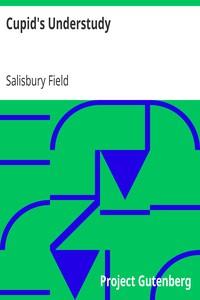Read this ebook for free! No credit card needed, absolutely nothing to pay.
Words: 31823 in 8 pages
This is an ebook sharing website. You can read the uploaded ebooks for free here. No credit cards needed, nothing to pay. If you want to own a digital copy of the ebook, or want to read offline with your favorite ebook-reader, then you can choose to buy and download the ebook.


: Essays of Michel de Montaigne — Volume 06 by Montaigne Michel De Hazlitt William Carew Editor Cotton Charles Translator - French essays Translations into English
OF VOLUME 6.
OF FRIENDSHIP
Having considered the proceedings of a painter that serves me, I had a mind to imitate his way. He chooses the fairest place and middle of any wall, or panel, wherein to draw a picture, which he finishes with his utmost care and art, and the vacuity about it he fills with grotesques, which are odd fantastic figures without any grace but what they derive from their variety, and the extravagance of their shapes. And in truth, what are these things I scribble, other than grotesques and monstrous bodies, made of various parts, without any certain figure, or any other than accidental order, coherence, or proportion?
"Desinit in piscem mulier formosa superne."
There is nothing to which nature seems so much to have inclined us, as to society; and Aristotle , says that the good legislators had more respect to friendship than to justice. Now the most supreme point of its perfection is this: for, generally, all those that pleasure, profit, public or private interest create and nourish, are so much the less beautiful and generous, and so much the less friendships, by how much they mix another cause, and design, and fruit in friendship, than itself. Neither do the four ancient kinds, natural, social, hospitable, venereal, either separately or jointly, make up a true and perfect friendship.
That of children to parents is rather respect: friendship is nourished by communication, which cannot by reason of the great disparity, be betwixt these, but would rather perhaps offend the duties of nature; for neither are all the secret thoughts of fathers fit to be communicated to children, lest it beget an indecent familiarity betwixt them; nor can the advices and reproofs, which is one of the principal offices of friendship, be properly performed by the son to the father. There are some countries where 'twas the custom for children to kill their fathers; and others, where the fathers killed their children, to avoid their being an impediment one to another in life; and naturally the expectations of the one depend upon the ruin of the other. There have been great philosophers who have made nothing of this tie of nature, as Aristippus for one, who being pressed home about the affection he owed to his children, as being come out of him, presently fell to spit, saying, that this also came out of him, and that we also breed worms and lice; and that other, that Plutarch endeavoured to reconcile to his brother: "I make never the more account of him," said he, "for coming out of the same hole." This name of brother does indeed carry with it a fine and delectable sound, and for that reason, he and I called one another brothers but the complication of interests, the division of estates, and that the wealth of the one should be the property of the other, strangely relax and weaken the fraternal tie: brothers pursuing their fortune and advancement by the same path, 'tis hardly possible but they must of necessity often jostle and hinder one another. Besides, why is it necessary that the correspondence of manners, parts, and inclinations, which begets the true and perfect friendships, should always meet in these relations? The father and the son may be of quite contrary humours, and so of brothers: he is my son, he is my brother; but he is passionate, ill-natured, or a fool. And moreover, by how much these are friendships that the law and natural obligation impose upon us, so much less is there of our own choice and voluntary freedom; whereas that voluntary liberty of ours has no production more promptly and; properly its own than affection and friendship. Not that I have not in my own person experimented all that can possibly be expected of that kind, having had the best and most indulgent father, even to his extreme old age, that ever was, and who was himself descended from a family for many generations famous and exemplary for brotherly concord:
"Et ipse Notus in fratres animi paterni."
We are not here to bring the love we bear to women, though it be an act of our own choice, into comparison, nor rank it with the others. The fire of this, I confess,
"Neque enim est dea nescia nostri Qux dulcem curis miscet amaritiem,"
Free books android app tbrJar TBR JAR Read Free books online gutenberg
More posts by @FreeBooks

: Essays of Michel de Montaigne — Volume 04 by Montaigne Michel De Hazlitt William Carew Editor Cotton Charles Translator - French essays Translations into English


: Essays of Michel de Montaigne — Volume 03 by Montaigne Michel De Hazlitt William Carew Editor Cotton Charles Translator - French essays Translations into English






